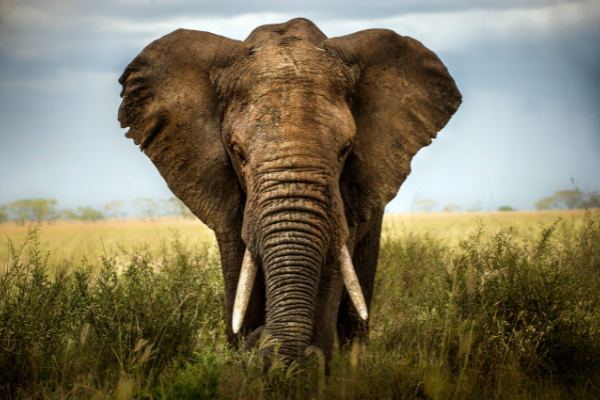Friends of Animals secured a victory in the Tenth Circuit on Oct. 13 in a Freedom of Information Act case involving records related to animal-part imports into the U.S.
At issue in the case were two FOIA requests filed by FoA with the Department of the Interior in 2019 seeking information on the numbers of elephant and giraffe parts being imported into the U.S., including the names of the importers. U.S. Fish and Wildlife Service redacted a variety of the information requested—including the importers’ names—on the supposed basis that their privacy trumps the public’s interest in the data.
“Transparency is critical to our ability to protect endangered animals and to our democracy, so this is a substantial victory for Friends of Animals and for the public,” said Stephen Hernick, senior attorney, in Friends of Animals’ Wildlife Law Program. “The Freedom of Information Act favors disclosure, not secrecy, and grants the public a right to information that would benefit the public discourse. It does not allow the government to withhold records to protect individuals who choose to import parts from slaughtered elephants. And FOIA does not permit the government to withhold records simply because the government speculates that some harassment is possible.”
FoA filed a lawsuit against the DOI challenging the redactions because they were in violation of FOIA, but the district court agreed with the government that the redactions were warranted. FoA appealed this ruling, and the Tenth Circuit agreed with FoA’s arguments on two of the three issues, reversing the district court.
The Tenth Circuit concluded that the government’s claims of potential harassment were purely speculative, because importers voluntarily participate in a highly regulated activity and because similar information is made public by the government. The court held that there is a significant public interest in holding FWS accountable for how it regulates the import of elephant parts.
Regrettably, the court affirmed the district court’s ruling that the government can redact the giraffe records.
“The court held that there was not a significant public interest in imports of giraffe parts when giraffes were not protected by the Convention on International Trade in Endangered Species (CITES), but the opinion suggests that the government should release records relating to giraffes going forward, as trade in giraffes and their parts is now regulated by CITES,” Hernick explained.
Just 350,000 elephants and 97,500 giraffes remain in Africa. While elephants are listed as threatened under the Endangered Species Act, shockingly, giraffes currently have no protection under U.S. law.
FoA filed a rulemaking petition with the FWS in June to stop the importation of all sport-hunted “trophies” of threatened and endangered animals. FWS hasn’t responded yet. If the agency denies the petition, then FoA can challenge it in court.
Banning the import of trophies into the United States will have a profound impact on threatened and endangered species since American hunters kill far more animals than trophy hunters from any other nation.
“If the goal of the Endangered Species Act is conservation of species, our regulations should not grant a loophole glorifying the killing of the most vulnerable species by allowing the importation of their dismembered body parts,” said Hernick. “Permitting individuals to hang lion and leopard heads or mount elephant tusks on the walls of their homes, for example, undermines the message that we should be protecting them.”

